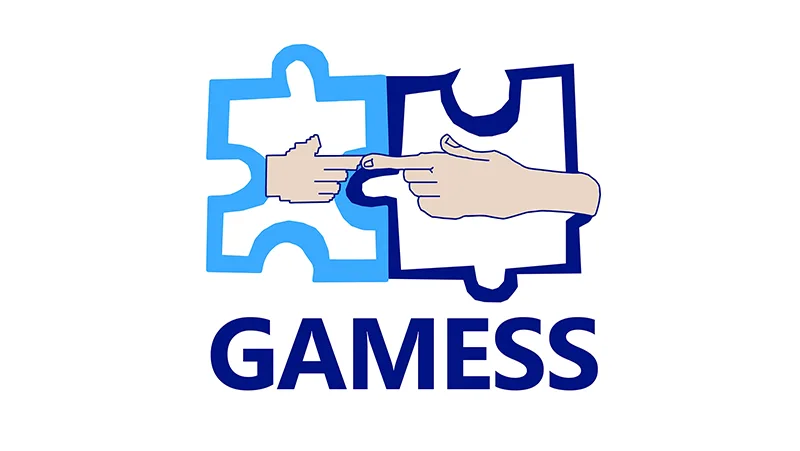Games for students with Autism as an effective Methodology in Education for the development of Social Skills
Project Code: 2021-1-DK01-KA220-SCH-000034350

Different research studies (Courtenay y Perera, 2020; Amaral, de Vries, 2020; Ameis et al., 2020) showed the negative effects COVID19 was bringing up for autistic people, in areas such as physical and emotional health, employment, family context, and the risk of loss of social skills and development setbacks. Such challenges, when they are present, are exacerbated by the unique social characteristics commonly associated with autistic people, who may often face difficulties in forming and maintaining social connections. Therefore, there is an urgent need to address the design or reinvention of educational service delivery using online/virtual tools that specifically focus on promoting the development of social skills for autistic children. These tools should be presented in a fun and educational manner, drawing on Game-Based Learning (GBL), that also enable teachers to enhance the social inclusion of children in mainstream classrooms. This approach is accompanied by a curriculum and an educational handbook.
Barriers in accessing digital technologies are mainly caused by a lack of accessible tools; lack of competences (teachers, people with learning disabilities and their families); poorly adapted educational methodologies; and few technological resources. In this sense, autistic people with lower cognitive levels need to improve their digital skills in order to bridge this gap and successfully use digital resources and technologies. Likewise, support and training for families and for professionals who attend them are also essential. Consequently, there is a need to create easily accessible tools for distance learning, that may both enhance digital competencies of autistic people and augment their social skills.
Acquiring social skills in schools is considered equally crucial as imparting academic knowledge. The capacity to engage appropriately is essential not only for acceptance within the school environment but also for success in life. Therefore there is a need for an interconnected educational package featuring a social skills curriculum, a virtual reality game to enhance social skills, and a booklet containing group classroom games that promote social interaction.
“The GAMESS project has been developed in respect to Game-Based Learning (GBL) approaches and co-funded by ERASMUS+ , KA220-SCH-Cooperation partnerships in school education. All the materials developed should be considered as an additional educational tool for learning purposes only, as they have been designed to assist teachers in promoting unity and accessibility within the classroom by supplying practical tools that may have a positive influence on the learning process of all students. The main objectives of the project revolved around enhancing social skills and social awareness of autistic students or autistic children within the mainstream classroom, assisting in the development of cognitive skills, and encouraging acceptance among peers. Thus, we must emphasise, that the project’s findings and materials are intended for educational purposes and should not be considered as alternatives, substitutes or extensions of other means of approaching autistic children. Of significance, this project aimed to create environments and set goals that promote the well-being and authentic expression of autistic children. Teachers are encouraged to take careful consideration of ethical principles, including the use of inclusive and respectful terminology.
“
One of the characteristics of autistic children, children with learning disabilities and other neurodevelopmental disorders is social skills deficiency. Given the idiosyncratic difficulties in the social and emotional understanding of autistic children, teachers may face considerable difficulties in managing their needs, thereby affecting the quality of the teachers’ relationship with these children (Emam and Farrell, 2009). Within this context, and considering how important learning social skills from an early age is, and the challenges teachers can face, we proposed a project with target group being general pre-school /primary school teachers who have autistic students in their mainstream classes, with the following objectives:
Primary school teachers, as well as training providers that will incorporate the elaborated project outputs into their training/ educational offer and encourage trainers to make use of them.
Higher Education Institutions (HEIs), professionals specializing in GBL, governmental departments, policymakers, professional associations working with autistic people and their families, and trainers working with teachers.
Social Skills Curriculum has been generated by all partners under the guidance of the curriculum design experts within the consortium. It addresses primary school teachers working with autistic children in the mainstream classroom. It aims to serve as the base for teachers who want to enrich social skills of their autistic students, and increase the teachers’ skills and competencies according to the specific requirements of the project. Taking into consideration:
a) the challenges autistic children face in the mainstream classroom and in the school environment in general
b) the social skills that autistic children usually lack (i.e communication skills)
c) the absence of comprehensive training curricula that focuses on the professional development of teachers in social skills. We consider that this training curriculum will bridge the gap between theory and praxis since practically it will familiarise the teachers with the GAMESS educational package (VR Game & Booklet of classroom group games).
The curriculum will be an invaluable source that will support teachers when upskilling social skills of their autistic students and will result in students’ improved school life and integration into the wider community.
This VR game is a collection of activities teachers can do with one or more students to train soft skills among children with autism. The activities range from drawing activities to emotion recognition to turn-taking. The VR game is online so teachers and students can be in the same environment at the same time, as well as multiple students can play together at the same time.
The activities implemented are based on the Booklet, also available here on the website.
This Booklet has been designed for primary school teachers. It is a collection of group games, which teachers can use to enrich social skills of young autistic students through interactive activities in real-life settings. This booklet will solve the problem educators often face in having adequate educational material to enhance social skills of their students. The social skills to be targeted were decided by the consortium, and the booklet was developed containing the theory behind group games learning, and guidelines to walk teachers through setting up each game, facilitating it, and debriefing participants. Various methods and approaches were followed, such as debates, role-play games in real-world settings, systems-thinking, and strategic exercises, having the potential to engage participants in a fun and motivating way.
Basically, the aim of the group games was to have young autistic children acquire social skills in question by practicing them in real-life-like settings. The innovative nature of the booklet lies in the fact that no booklet of Group classroom games for social skills, specially designed for autistic children, who are the final beneficiaries of the process, has been published so far.
The training activity took place in Burgos, Spain between 23rd and 25th of October, 2023. In this LTTA (Learning, Teaching and Training Activity) a total of 12 teachers from five partner countries were trained to use GBL (including VR technology and group classroom games) to enhance social skills of autistic children in the mainstream classroom. This training activity had a dual scope:
1. To increase the range of teaching skills of the teachers, specifically needed to upskill social skills of young autistic children (and also their neurotypical peers) through games. These skills are not usually taught explicitly in schools, despite the fact that a lot of autistic children struggle with social interactions. From this point of view, the aim of the training was to enable participants:
– Feel more confident using GBL in their teaching
-Become familiar with the Curriculum and the 2 different types of games developed within the project
-Recognise the basic social skills applicable in the school
2. To pilot-test the effectiveness of the developed materials against a group of teachers, from different countries or specialisations, who had the ability to provide a critical view over the documentation and identify possible gaps or difficulties in its application to autistic students. Teachers experienced all phases of project implementation and pilot tested the project outputs to define the necessary improvements and adjust them to the real needs of their students.
Finally, the training aimed to encourage the participants to develop non-formal education materials related to topics addressed. The training course was developed in the form of workshops in two different stages:
a) Presentation of the project outputs, their value, and settings that they can be used
b) Training on how to use the developed materials
The LTTA in Burgos, Spain, 23-25 October, 2023
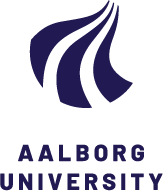
“The Multisensory Experience Lab (ME-Lab) is based at Aalborg University (AAU) in Copenhagen. AAU is a mission-oriented university which strive to play an active role in finding solutions to current – and future – global challenges and make a difference in the world. AAU aims to work in unison across areas of expertise and in cooperation with selected partners with a clear focus on the mission’s goals. We consider our interdisciplinary approach that is based on strong foundational and transformative research expertise to be a quality in our work.
The ME-Lab extends this mission to our work with multisensory technologies (e.g., virtual and augmented reality). For instance, In the ME-Lab we work on sound rendering for virtual reality and multisensory experiences, exploring the combination of different input and output modalities in interactive applications. We are interested in both development of novel hardware and software technologies as well as evaluation of user experience, often in an applied context. We apply our expertise in a variety of areas such as health, rehabilitation, education, art and entertainment. We are particularly interested in research topics related to sonic interaction design for multimodal environments, simulating walking experiences, sound rendering and spatialization, haptic interfaces, cinematic VR and enabling technology for people with impairments or disabilities.”
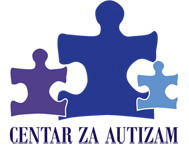
The Centar za Autizam is an GO based in Zagreb which provides a range of educational, vocational and social services to individuals with autism, those with learning disabilities and their families across Croatia. The Centar za Autizam is committed to meeting the needs of these individuals and their families, addressing their education and emotional welfare and wellbeing.
Founded in 1981, its programmes include: a pre-school programme, an education programme for 7-21 year olds, a holiday programme – including opportunities for young people to goto the countryside, a sports club, an adult day care programme, a learning disability programme, for individuals in education classes, day care and work settings, accommodation, in total 230 children and adults. The age range of services users is from three years to those in their fifties.
A range of therapists are based within CZA, which also provides crisis support and consultation services to families.
The Centar za Autizam works closely with local communities, with local industry and with academic partners. For example its adult housing programme has been developed in conjunction with with the local neighbourhood residents’ organisation, with utility companies such as Croatian Electricity and Croatian Waste Water, and with the University of Zagreb. A cooperative company run by young people with autism is based there, producing ceramic, textiles and artworks which are then sold, developing the young people’s entrepreneurial talents. The Centar za autizam also produces an annual academic journal, ‘Autism’.
During its 40 year history CZA has developed close links with those developing policy and planning, with parent organisations within Croatia and with academic partners. Its methods of working with individuals with autism are scientifically based (e.g. the use of structure, PECS…) . Also important is the work with mainstream schools. Some of CZA students attends twice per week mainstream school programmes like PE, Art and Music. Within CZA is an educated group of teachers that provide proffesional support for teachers who work with autistic students in maistream schools. This work is organized together with Education and Teacher Training Agency in Croatia.
Center for Autism web page: www.autizam.hr
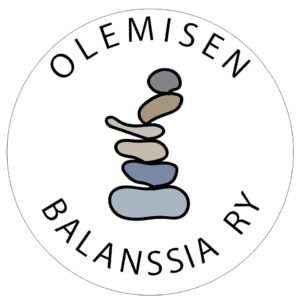
Olemisen Balanssia ry is a research-based entity and conducting research and development studies in the fields of formal education, trainings, establishing national and international networks, combining theoretical and methodological studies with real-life field studies. Our aim is to be an independent and research-based nonprofit entity that contributes to the structural transformation in education for the development of the child and society by creating a common mind from qualified data, constructive dialogue and different opinions.
The main focus of our work is the definition of educational needs, with activities focused on data collection, structured research, and constructive dialogue. Inspired by the Finnish educational model, we prioritize social-emotional learning alongside cutting-edge educational technologies. We believe that everyone should be prepared for today’s workforce and understand the complex world in which we live and so we need to raise standards, providing a solid education in science, mathematics, and technology and developing the transversal skills to work collaboratively and creatively with others.
True to our roots, we complement our research work with a strong program of inter-cultural integration and exchange activities, and entrepreneurship projects helping people in difficult circumstances (young mothers, immigrants, NEETS etc.) to continue learning, with a view to long term reductions in unemployment and improved integration.
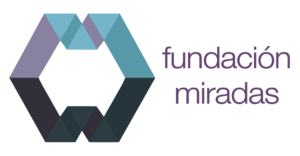
Fundación Miradas is an organisation created by Autismo Burgos in 2013 oriented to the assistance and protection of autistic people and their families.
The aim of Fundación Miradas is to support and safeguard autistic people and their families, improving their life´s quality and carrying out several actions aimed at defending the rights of the people under its “guarda de hecho, curatela o representación”.
Likewise, it develops initiatives that promote awareness, knowledge, study and research on autistic people and their families. In this sense, Fundación Miradas participates in different Erasmus+ KA1 and KA2 projects with the aim of improving the quality of life autistic people.
In 2015, the Miradas Chair for Autism was created in collaboration with the University of Burgos. The Chair is the first one in Spain focused on the field of autism, and it was born to promote research, innovation, training and awareness on autism.
The organisation, of small size and with an average staff of 6 professionals, develops most of its activities with the support of volunteers, collaborations with other organisations and networking.
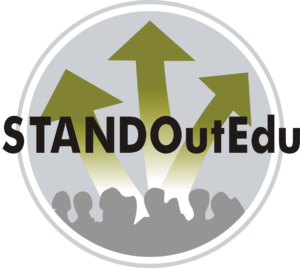
STANDO LTD is a research and educational organisation based in Cyprus, dedicated to the advancement of research and innovation. We are, at the same time, an approved VET Centre accredited by the Human Resource Development Authority of Cyprus. The strength of our enterprise primarily lies in our highly qualified team and its extended network of international partners. Our dynamic and experienced academics, researchers and practitioners are committed in implementing large scale co-funded projects and collaborate with organizations from Cyprus and around the world.
We actively participate in the planning and implementation of national and international projects, aiming at providing innovative solutions that facilitate the development of people and the cohesion of societies. Since 2016, we are providing a series of professional and academic trainings under the scope of Erasmus+ KA1 and KA2, as well as courses, seminars and consulting services to various target groups (students, youths, teachers, policy makers, parents, adults), learners and staff of Vocational Education and Training (VET) providers and Adult Centres.
Transnational Project Meetings (TPMs) brought partners together to discuss project progress and milestones in face-to-face meetings.
Multiplier Events took place in each partner country. Project was fully introduced with all its results.
